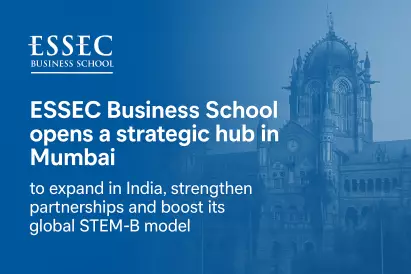Summary: Oceania's Master’s in Innovation landscape in 2025 is dynamically evolving amid global digital and sustainability megatrends. This article analyzes key drivers, emerging curriculum trends, employability skills, regional challenges, and the strategic role of institutions in improving innovation education across Australia, New Zealand, and beyond.
Innovation Education in Oceania: Overall Landscape and Market Size
Oceania is rapidly positioning its Master’s in Innovation degrees as critical drivers of its knowledge economy.
Anchored by leading institutions in Australia and New Zealand, the region continues to strengthen its foothold thanks to solid policy backing and rising private sector collaboration.
Recent years have seen a consistent uptick in postgraduate enrollment, with over 181 business-related Master’s programs offered in Australia alone.
Notably, digital transformation, workforce aging, and tech skills shortages have fueled this education segment.
Upskilling for green innovation is also gaining traction, especially relevant to fields like sustainable development and agribusiness.
Key Market Drivers: Policies, Technological Trends, and Regional Shifts
The Master’s in Innovation space in Oceania is shaped by several transformative forces.
Digitalization and AI adoption across industries demand new competencies—ranging from data analysis to agile leadership.
Shifts in global supply chains and increasing geopolitical pressure have also contributed to Oceania developing more self-sufficient innovation ecosystems, notably in Sydney and Melbourne, which are ranked globally as innovation hubs.
There’s a growing convergence between education and tech sectors to address specific skill gaps—especially in emerging fields such as cybersecurity and public sector modernization, supported by evolving public administration strategies.
Academic Trends: Program Delivery, Curriculum Innovation, and Specializations
The curriculum of top-tier innovation degrees in Oceania reflects a broad commitment to interdisciplinarity.
Students regularly explore intersections of design thinking, technology, entrepreneurship, and public policy—often via live cases and co-designed industry projects.
Experiential and modular learning pathways are increasingly available, including micro-credentials and stackable programs that cater to mid-career professionals.
Hybrid and online formats dominate delivery modes.
Programs are frequently infused with data and AI fundamentals to meet evolving workforce expectations.
Specializations gaining momentum include digital health and regenerative innovation—closely tied to broader sectors such as health management and design-centric innovation.
Labor Market Alignment: Graduate Skills, Placement, and Employer Expectations
Skills such as strategic data analytics, platform innovation, digital product development, and sustainability acumen are top priorities for employers.
Professionals are expected to combine tech capabilities with transversal skills like adaptive thinking, leadership, and cross-cultural collaboration.
As a result, graduates of Master’s programs in innovation often find placement in consulting, government innovation labs, startups, or ESG-focused corporate roles.
In many programs, real-world internships and collaborative projects are essential graduation requirements.
These elements strengthen employability, with top salaries often found in consulting and digital finance—closely related to fields like financial markets and executive MBA programs.
Accreditation, Mobility, and Global Recognition
Quality control remains stringent across Australia and New Zealand through frameworks like the AQF and NZQA.
Oceania’s innovation degrees also benefit from global recognition in key innovation rankings and awards, especially those outlined in the Innovation Awards rankings.
Credit transfer mechanisms and post-study visa policies enhance regional mobility, especially for students from Southeast Asia and South Asia.
These policies, combined with dual degree initiatives, are helping Oceania institutions compete with established hubs in Europe and North America.
Investment, Affordability, and Return on Innovation Education
Tuition for innovation Master’s degrees ranges from AUD 30,000–50,000 annually for international applicants, while domestic students often pay significantly less. However, financial barriers persist, particularly for students from rural regions and emerging economies.
Proactive steps like increased scholarships and employer-funded programs are being explored to improve access.
Modular learning—supported through stackable badges—offers reduced upfront investment while maintaining career impact.
High ROI is frequently reported by professionals entering sectors like sustainable tech, business strategy, or business intelligence.
Challenges: Faculty Gaps, Infrastructure Inequity, and Labor Alignment Risks
Among the key challenges facing institutions in Australia and New Zealand is attracting qualified faculty with expertise in fast-evolving fields like AI, impact entrepreneurship, or environmental innovation.
Maintaining updated curricula in a context of rapid tech evolution remains a priority that requires close industry collaboration.
Additionally, regional infrastructure disparities may limit the reach of innovation education outside major cities.
Policymakers are called to address these gaps through national strategies that encourage inclusive innovation development and balanced faculty pipelines.
Outlook: Strategic Forecasts and Scalable Innovation Themes (2025–2028)
Forward-looking projections indicate continued growth in both domestic and international enrollment, especially through hybrid delivery formats.
Innovation education is expected to support careers in societal transformation, sustainability, and digital service delivery.
Government incentives and collaborative frameworks could further position Oceania as a global leader in interdisciplinary innovation pedagogy.
Aspiring institutions are eyeing scalable themes like AI innovation leadership, regenerative economy models, and digital health—driving convergence with sectors such as public health economics and corporate responsibility.
Public support, agile curricula, and enhanced global networks remain the foundation for success.
Final Thoughts: Oceania as a Beacon of Progressive Innovation Education
Oceania's Master’s in Innovation ecosystem exemplifies how an education system can evolve to meet the demands of a radically transforming world.
Programs in Sydney, Melbourne, Auckland, and Brisbane are proving their adaptability, embedding core competencies, and enhancing cross-disciplinary collaboration.
Despite affordability pressures and faculty recruitment hurdles, the region is making strides through proactive policy, employer engagement, and scalable delivery models.
For students, this represents more than a career boost—it’s an opportunity to tackle global challenges. For institutions, the challenge is to lead with agility, connectivity, and a steadfast commitment to real-world relevance.



